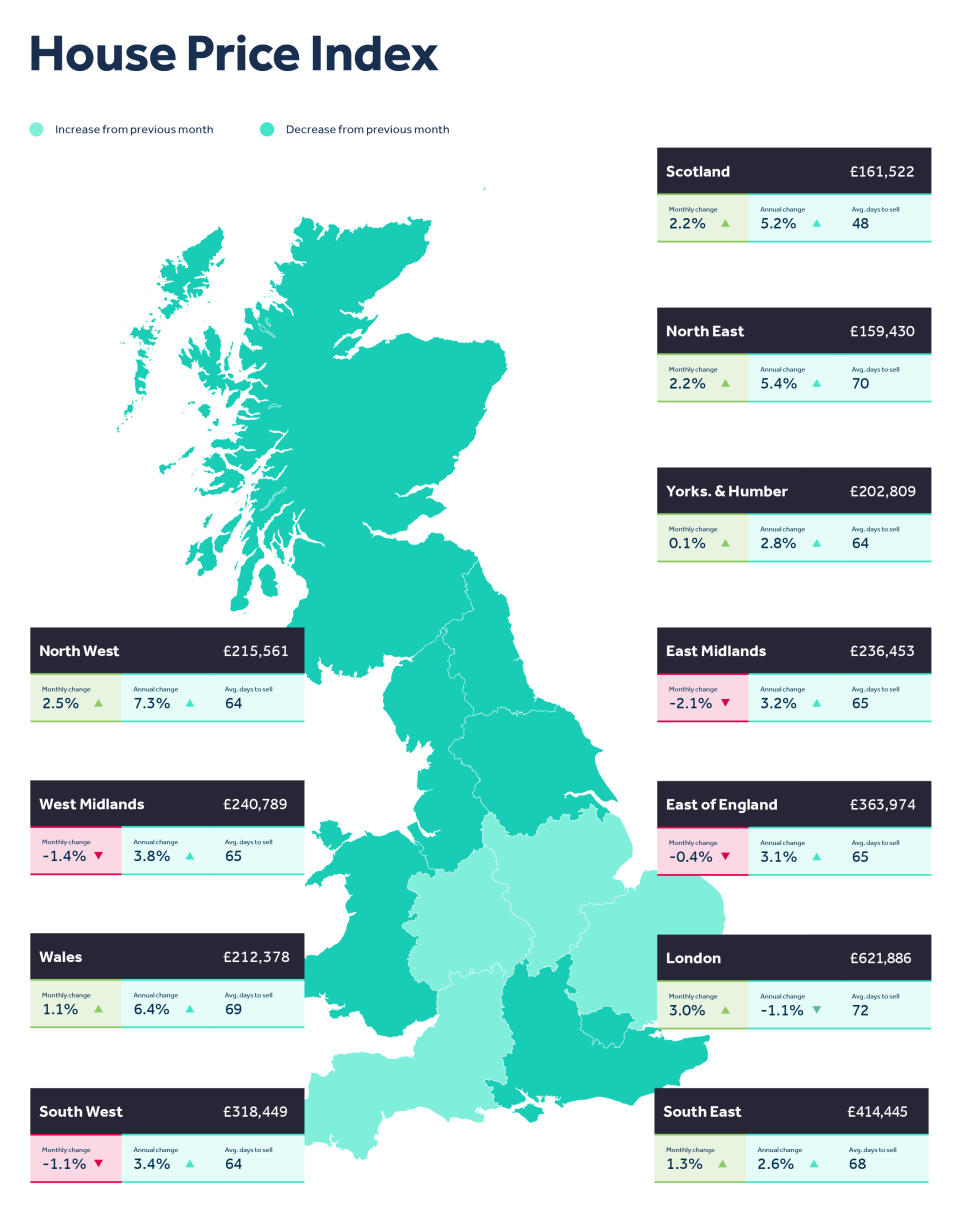One in five home buyers agreeing purchases last July ‘still waiting to complete’
Around one in five home buyers who agreed a deal last July when a stamp duty holiday was announced have still not completed their purchase, analysis suggests.
The stamp duty holiday is due to end on March 31 2021.
Rightmove has estimated that around 100,000 buyers who agreed a purchase before Christmas will fail to complete by the stamp duty deadline, and could be faced with a tax bill.
Its latest analysis suggests that of those buyers who agreed a purchase during the month the stamp duty announcement was made in July last year, one in five remain stuck in the “logjam” more than six months later.
Tim Bannister, Rightmove’s director of property data, said: “Whilst it’s too late for the stamp duty holiday, there are good reasons to come to market now, especially if selling a property suitable for a family.
“There are more possible buyers looking and fewer suitable alternatives to divert their attention away from yours.”

Rightmove also found that the average price tag on a home coming on the market increased by around £1,500 in February.
Rightmove said that, following three months of falls, sellers’ asking prices increased by 0.5% or £1,522 typically, fuelled by a shortage in supply and growing buyer demand.
Across Britain, the average asking price for a home is £318,580.
The findings were released as a separate report from Halifax showed that the average cost of a detached property in the UK reached £486,595 in December 2020, marking an annual increase of 10% or £43,364.
This compared with an increase of 3.19% or £4,533 for flats, which have an average price of £146,717.
Terraced house prices have increased by 5.84% or £11,178 annually to £202,540 on average, while semi-detached properties became 6.26% or £16,930 more expensive, to reach an average price of £287,313.
Russell Galley, managing director, Halifax, said: “As many continue to work from home, this has led to a significant increase in demand for bigger properties, which has likely driven the boost in price we’ve seen in detached homes versus other property types.”
Rightmove’s report also quoted the views of estate agents, some of whom said would-be sellers are pausing until coronavirus vaccinations are rolled out more widely and restrictions are eased.
Aldo Sotgiu, managing director of operations at Arun Estates, said: “We’re seeing high levels of buyer activity and demand remains strong, but the number of new listings coming to the market is a concern, with many potential sellers preoccupied with the wider problems associated with the pandemic.
“In addition, sellers now realise that they won’t now complete before the end of March and be faced once more with a full stamp duty bill on their onward purchase.”
Michelle Gallagher, sales director at JDG Estate Agents in Lancaster, said: “2020 saw a mini-boom in Lancaster and this has continued in 2021, with our sales activity in January being up 23% in the LA1 postcode, and we’re seeing a trend of prices rising more quickly in our rural locations.
“Buyer demand is up, fuelled by the need for more space as more people are having to work from home. For many, homes are shrinking with the kids being home due to home schooling. The problem now is the lack of supply, and as such we’re seeing inflated asking prices on some properties.”
She said 95% of valuation appointments are being done via video call.
Richard Freshwater, director at Cheffins in Cambridge said: “As valuations are currently down by around 20% in comparison to January 2020, we are seeing increased competition in the market as there continues to be a ferocious appetite from buyers.
“As the shortage of supply is unlikely to be addressed until the vaccine rollout is in its later stages, frustrated buyers will continue to struggle to find the type of home which they are looking for.”
Kate Eales, head of regional residential agency at Strutt & Parker, said: “We’re seeing some would-be sellers concerned about viewings and the practicalities of putting their property on the market right now. Some are waiting until restrictions ease before marketing their home and as a result stock levels are down.
“Last year we saw demand rise for family homes off the back of people’s experiences in lockdown and this is where we are seeing the biggest shortage of stock.”

 Yahoo Finance
Yahoo Finance 